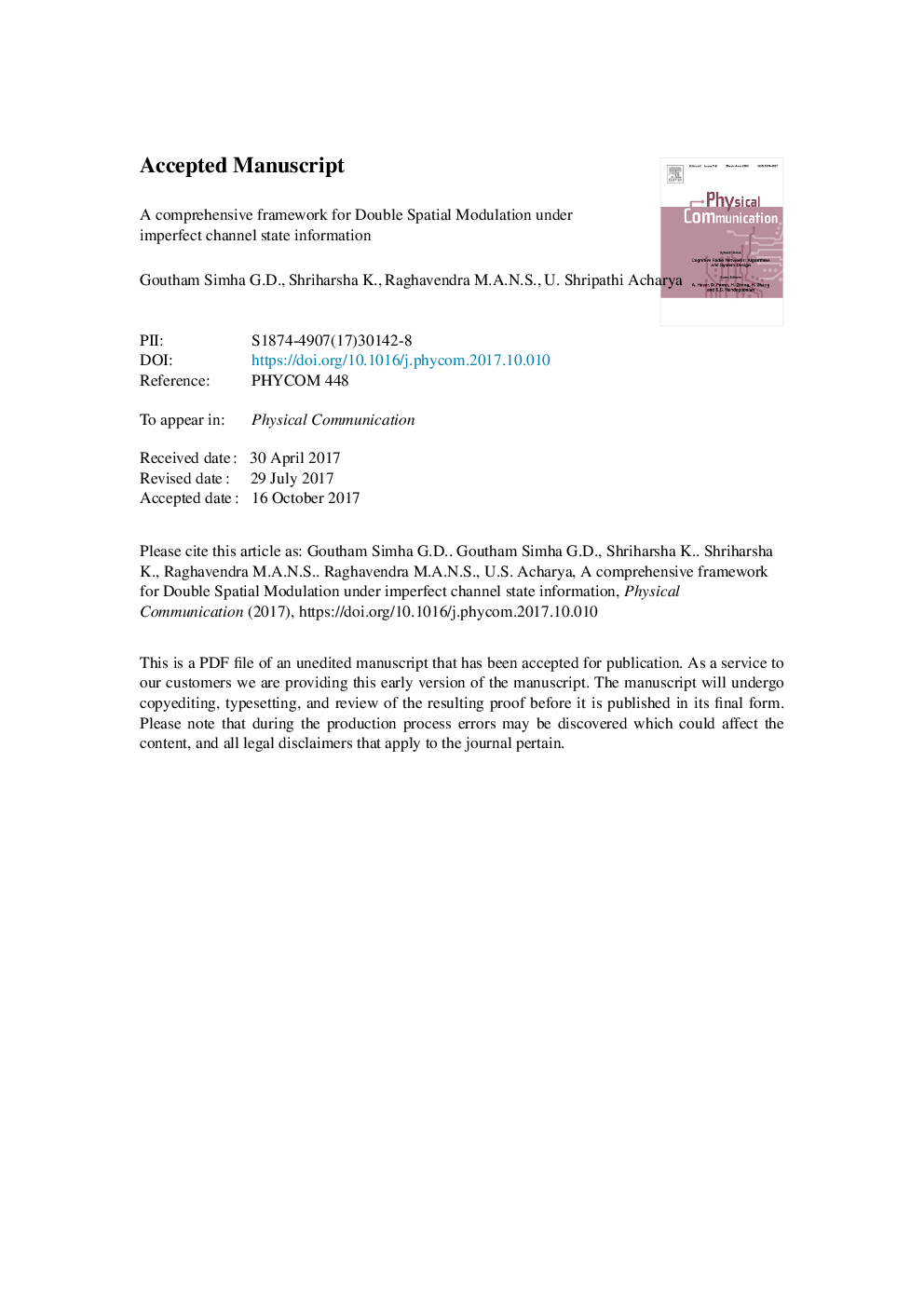| Article ID | Journal | Published Year | Pages | File Type |
|---|---|---|---|---|
| 6889314 | Physical Communication | 2017 | 25 Pages |
Abstract
The essential requirement for a 5G wireless communication system is the realization of energy efficient as well as spectrally efficient modulation schemes. Double Spatial Modulation (DSM) is a recently proposed high rate Index Modulation (IM) scheme, designed for use in Multiple Input Multiple Output (MIMO) wireless systems. The aim of this scheme is to increase the spectral efficiency of conventional Spatial Modulation (SM) systems while keeping the energy efficiency intact. In this paper, the impact of imperfect channel knowledge on the performance of DSM system under Rayleigh, Rician and Nakagami-m fading channels has been quantified. Later, a modified low complexity decoder for the DSM scheme has been designed using ordered block minimum mean square error (OB-MMSE) criterion. Its performance under varied fading environments have been quantified via Monte Carlo simulations. Finally, a closed form expression for the pairwise error probability (PEP) for a DSM scheme under conditions of perfect and imperfect channel state information has been derived. This is employed to calculate the upper bound on the average bit error probability (ABEP) over aforementioned fading channels. It is observed that, under perfect and imperfect channel conditions DSM outperforms all the other variants of SM by at least 2dB at an average bit error ratio (ABER) of 10â5. Tightness of the derived upper bound is illustrated by Monte Carlo simulation results.
Keywords
Related Topics
Physical Sciences and Engineering
Computer Science
Computer Networks and Communications
Authors
Goutham Simha G.D., Shriharsha K., Raghavendra M.A.N.S., U. Shripathi Acharya,
